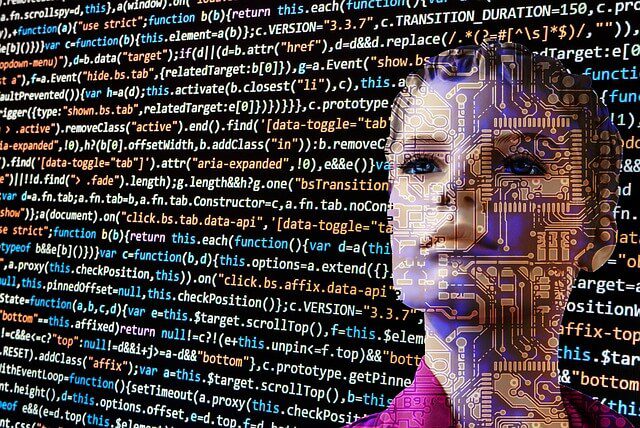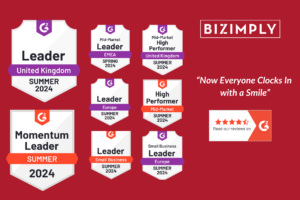The future of artificial intelligence in hospitality and retail
Retail and hospitality companies are applying artificial intelligence in new ways across the entire product and service cycle from promotion to post-sale customer service interactions.
But a few questions need to be answered: which of these deliver bottom-line benefit? Which can add to a company’s competitiveness and reputation? Which are sustainable, and which are pure gimmicks?
Here are a few examples of areas where you might consider investment:
-
Chatbots
One of the most exciting uses for artificial intelligence in retail and hospitality is in providing assistance to customers on websites, social media platforms and instant messaging apps.
When it is used in this way, artificial intelligence is able to respond to questions and provide valuable information to customers, even when a customer service representative is not available.
People have come to expect ever-faster response times and artificial intelligence allows businesses to respond to a volume of queries that would be impossible for humans working alone. In future, this will go further.
As the systems become more sophisticated based on machine learning, diners and checked-in guests will even be able to place their table and room-service orders to a chatbot, freeing up your staff (whether they are mere humans, or already robots!)
-
Personalisation
Personalised experiences boost revenue and customer loyalty. But keeping track of the various preferences of hundreds or thousands of customers (e.g. which menu items do they prefer, what newspaper do they read etc.) is an expensive business – so it has been largely restricted to high-end vendors and a privileged customer elite.
Today, artificial intelligence can level the playing field. With machine learning an artificial intelligence system can not only identify the personal touches that draw a particular customer to your restaurant, hotel or brand; based on what it learns, it can also forecast what will appeal to a new customer (predictive analytics) and suggest actions to maximise customer satisfaction and/or revenue (prescriptive analytics).
-
Demand Forecasting and Price Optimisation
Demand forecasting has long been an important AI application in the airlines industry. As we all know, the price of a ticket on a budget airline can quadruple from one day to the next. Often the reason is obvious, such as a bank holiday, at other times less so, perhaps because there is a minor holiday or sporting fixture in the destination city.
How might this apply in retail and hospitality? There are multiple ways. Airbnb already helps with pricing recommendations based on AI. In retail, demand forecasting can enable companies to make significant savings through optimised inventory.
And all can benefit from better staff rostering. Machine learning based on vast amounts of data allows the AI system to improve tactical pricing and promotional recommendations on a continuous basis. And this in turn frees up managers to focus on more strategic decisions.
-
Face-to-face Interactions
With this one it may seem like we are entering the realms of science fiction. But the first robotic hotel concierge, “Connie” was introduced by Hilton three years ago. Connie uses AI and speech recognition to provide tourist information to guests who speak to her. Connie learns from each human interaction, improving the quality of all future communications.
In retail, the Pepper robotic sales assistant, a Franco-Japanese collaboration, has also had some early successes. A pilot of the Pepper in California’s b8ta stores in Palo Alto and Santa Monica, California, yielded a 70% increase in foot traffic in Palo Alto and a 50% increase in Neo-pen sales in Santa Monica.
-
Social Media Management
A lot of business these days is won or lost as a result of good or bad reviews online and in social media. But even for medium-sized multi-location brands, the sheer volume is beyond management by humans alone.
The ability of artificial intelligence to analyse and parse reviews and other social media posts quickly and at scale offers you insight into what people are saying about your brand and specific outlets, allowing you to respond.
You will then be in a position to broadcast good reviews while dealing with negative feedback by responding and correcting the situation.
-
Data Analysis
The main applications of artificial intelligence are rather more mundane than robotic concierges and waiters. And yet incredibly effective. There are many AI applications that enable you to gather analyse and interpret data in order to draw conclusions about customers, business practices and pricing strategies.
The key advantage of artificial intelligence in analytics is its ability to sort through huge amounts of data many times faster and with fewer errors, and then to identify patterns that enable you to draw inferences.
Amazon has been doing this for nearly two decades, making (often counter-intuitive) cross-selling offers and recommendations to customers. But today, the kind of software that cost companies like Amazon millions is available via the cloud on an economical per-use basis.
-
Payment Fraud
Payment fraud costs retail and hospitality companies a staggering amount every year – but refusing payments is bad for reputation and customer relationships. Again, we come back to the same old problem: humans are slow, and they make a lot of errors.
For retail businesses, by the time the fraud has been detected, it is usually too late. But today there are AI applications that use machine learning to detect likely fraud while minimising the number of so-called “false positives”.
Such applications will become virtually mandatory for retailers as the volume of eCommerce business increases.
Summary
In summary, while it is inevitably the major players like Amazon and Hilton who are pushing out the frontiers of AI in retail and hospitality, its capabilities soon become attainable for medium and small sized companies.
By leveraging these capabilities you can give yourself powerful competitive advantages.









